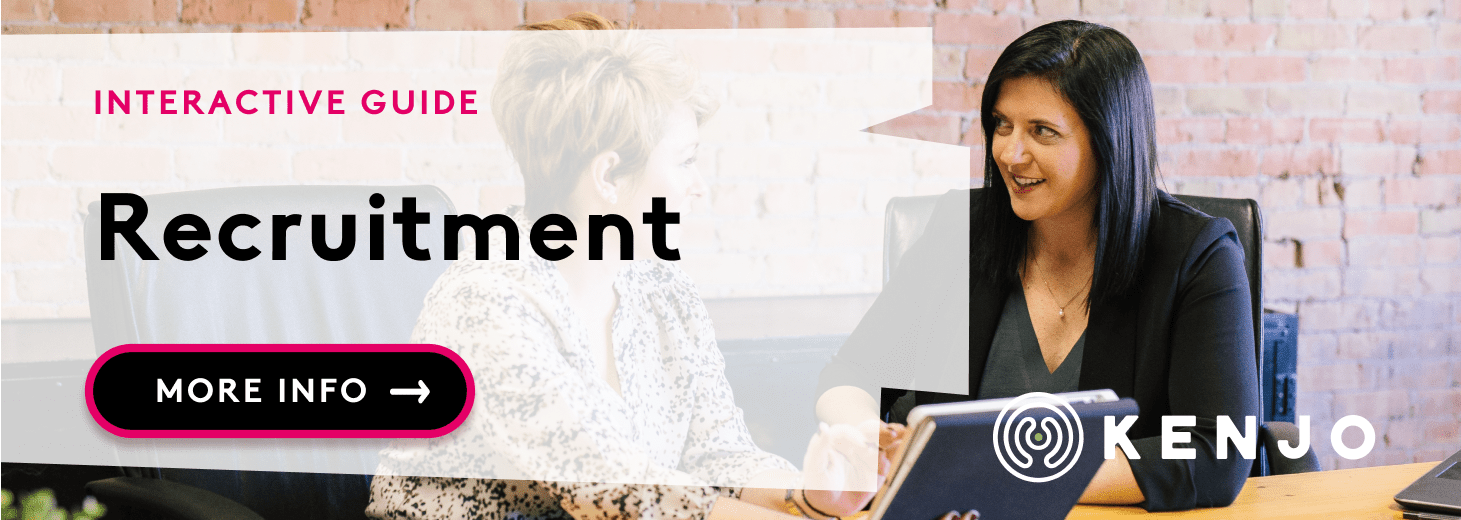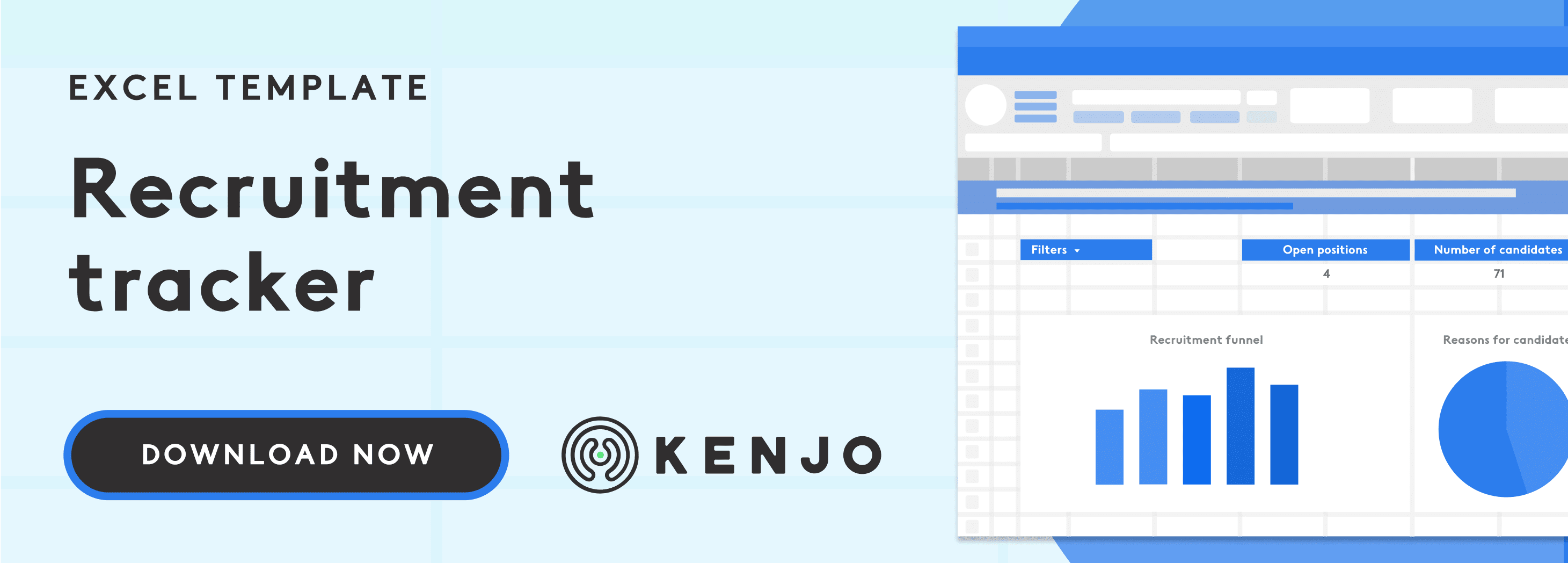Group interviews are becoming more routine as a hiring tool as companies realise the many benefits they offer over the traditional model. Gathering candidates within the same room can be revealing and provide us with an insight we wouldn’t otherwise get.
Do you want to find out more about this interview model? In this article we’ll explain in detail how it works, the advantages it offers, the types available and what to bear in mind when organising a group interview as part of their recruitment and selection process.
What's a group interview?
A group interview involves a single interviewer meeting with and assessing various candidates at the same time. The aim of these interviews is to generate collective discussions and observe each of the participants in a team dynamic. In this way, we get an idea of how they would develop within the company.
It requires a particular type of character to lead an interview like this. The recruiter needs to be able
A group interview can also refer to one in which a number of interviewers assess a single candidate at a time.
What is the aim of a group interview?
There are a number of reasons why companies opt for group interviews. The short answer is that the format is so much more efficient. Interviewing multiple candidates at once saves time and money.
However, in reality, the main aim of using a group discussion interview is to observe how a candidate relates to other people in a work environment, their ability to work in teams, their approach to communicating with other people or resolving conflicts. Ultimately, it exposes their strengths and weaknesses. For the recruiter, it is much easier to decide if any of the interviewees will be a good fit with the team and the company culture.

The advantages of a group interview
Group interviews offer many advantages over the classic one-on-one job interview. Here are some of the most important:
- Reduced recruitment time: in group interviews we can assess a number of candidates at the same time, saving many hours of work.
- Reduced recruitment costs: group interviews are much more affordable than individual ones. Seeing more candidates in less time leads to significant cost savings in the recruitment process.
- Behaviour of candidates in a group: witnessing the group dynamics allows us to see how candidates behave in a team. Observing how they act, how they work with others, whether they assume a leadership role, etc, can be particularly useful.
- Avoid bias: often more than one recruiter takes part in group interviews, sharing the assessment duties and therefore ensuring a more accurate and less biased evaluation.
The types of group interviews
There are various different types of group interviews to choose from depending on what aspect of candidate behaviour we want to observe. The most appropriate one will depend on the requirements of the job and the company:
Group interview
As we’ve already established, the classic group interview involves one interviewer questioning a group of candidates. The one who manages to stand out from the rest is usually selected for the position.
Panel interview
In this type of group interview a single candidate faces a number of interviewers (a panel). The group usually includes representatives from Human Resources and the relevant department for the position, and perhaps another colleague.
Forum
In this case, the group of candidates is given a set topic to develop and present to the others. The interviewers will be scrutinising how persuasive each person is, their communication skills or confidence speaking in public, how they get on with their colleagues etc.
Role playing
Role playing might involve staging a crisis situation in which each candidate is given a character or function to represent. In this way, we can assess how decisively each person acts when faced with challenging circumstances. It is one of the most common techniques.
Debate
In this type of group interview candidates are given a theme to discuss, in which they will defend a certain viewpoint in front of the others. Their communication skills will be in full view, allowing us to see if they can express their ideas and arguments clearly.
Brainstorming
If the role that is up for grabs has an element of creativity, why not organise a brainstorm? See first-hand how original candidates can be and their ability to conjure up new ideas under pressure.

When should you use group interviews?
Group interviews are the perfect option when:
- You need to fill the vacancy urgently.
- You need to recruit a number of people for the same job or similar positions.
- You have a lot of similar candidates who could fill the role and you need to decide which one is the best.
- You’re trying to fill a position for which teamworking is important or when it is a high-pressure role.
- You need to find an employee who is great at communicating, teamworking or dealing with stress.
.jpeg?width=600&name=Recruitment%20(7).jpeg)
5 steps to conducting a group interview
So, it’s time to conduct your group interview. What do you need to do? It’s vital to prepare a comprehensive plan to make the session worthwhile.
You should:
1. Tell the candidates
It’s important to tell the candidates and ensure they understand they will be taking part in a group interview. This can be an additional source of anxiety, so it’s best to give them time to adjust to the idea and prepare themselves.
2. Meet with the other interviewers in advance
This is an essential step to ensure everything goes to plan. If there are a number of interviewers, meet with them in advance to agree who will facilitate the interview, which questions or situations to include and how they will evaluate each candidate’s performance. It is important you are all on the same page!
3. Introduce yourself, and ask the candidates to do the same
To break the ice and relax the atmosphere, introduce yourself with your name and job role. Your colleagues in the session should do the same. Then it is the candidates’ turn.
4. Take turns asking questions
Ideally, only one of the interviewers should speak. However, if the others wish to ask questions, it should be in an organised fashion. It will be much easier for the candidates to digest information and understand the motives behind each interviewer’s questions.
5. Make a collective decision with the other interviewers
After the group interview, take time to discuss your impressions of the candidates. It is important not to delay this step, to keep the thoughts and opinions fresh and front of mind. Sharing your perspectives will make it easier to make a good decision.
How do you identify a good candidate in a group interview?
The criteria for selecting one candidate over another in an interview depend on many different variables. In general, however, the following are considered positive attributes:
- The candidate appears relaxed and comfortable speaking in public and interacting with their colleagues.
- They allow others to speak and listen and participate in the conversation spontaneously.
- They are able to express their ideas clearly and argue their opinions.
- They collaborate with their peers and participate equally with the others.
Likewise, it is important to bear in mind the type of role we are recruiting for. For example, if the interview is for a sales position, the person must demonstrate friendliness, the ability to listen, respecting others’ turns to speak, being persuasive, etc.
On the other hand, if we are looking for a team leader, we should concentrate on who has most experience, their career highlights, a candidate that demonstrates a positive attitude, and communicates well with colleagues, etc.
A good tip is to have a list of the ideal characteristics you’re looking for in a candidate to remind you during the group session.
.jpg)


.jpeg?width=600&name=Recruitment%20(7).jpeg)
